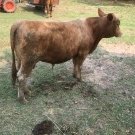Grass problem
-
Recently Browsing 0 members
- No registered users viewing this page.
Announcements
-
Topics
-
-
Popular Contributors
-
-
Latest posts...
-
45
Report Navy’s New Submarine to be 'Completed Within the Next 3 Years'
They’re getting it ready for the war museum. -
18
I'm considering taking Metformin for off label reasons
Update on this. A few minutes online and I realize I would need a doctor for kidney function monitoring. Too complex otherwise. The "good" news is this could be requested for a number of conditions including just being over age 60 or hypertension so probably very easy to get that done medically even without specific endorsement for off label metformin. Going further, I probably should be doing that already regardless. -
6
Thai - Cambodia Conflict Ubon Ratchathani Airport Tightens Security Amid Border Tension
And I thought it was sorted ! -
8
-
28
U.S. alcohol consumption hits near-100 year low
Can't generalize. US is as large as Europe, and there is regional variety. I just checked two stores (Safeway and Raley's) near me (had to check because I do not buy booze in grocery stores). They both had JW Red and Black, both in 750ml and 1.7l sizes. One had Penfold shiraz, the other had Penfold and Yellow Tail. Of course, that would not be the case in Mississippi. Or Albania. -
17
More "Wise" Bad News For Wise Customers Residing in Thailand
Schwab refunds international ATM fees.
-
-
Popular in The Pub




.thumb.jpg.3ee24d9400fb02605ea21bc13b1bf901.jpg)






Recommended Posts
Create an account or sign in to comment
You need to be a member in order to leave a comment
Create an account
Sign up for a new account in our community. It's easy!
Register a new accountSign in
Already have an account? Sign in here.
Sign In Now